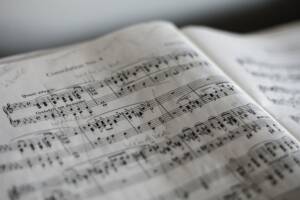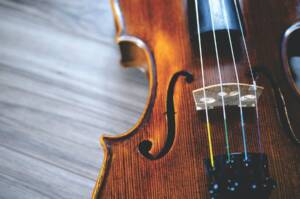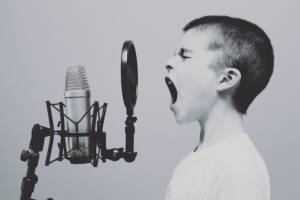Unleashing Your Creativity in the Studio: Innovative Techniques for Musicians

Music is an art form that relies heavily on creativity. It is the creative process that allows musicians to compose, arrange, and perform unique and original pieces of music. Creativity is what sets musicians apart and helps them find their unique voice. It is the driving force behind innovation and experimentation in music. Without creativity, music would become stagnant and repetitive.
The importance of creativity in music cannot be overstated. It is what allows musicians to express themselves and connect with their audience on a deeper level. Creativity is what makes music exciting and captivating. It is what keeps the art form alive and evolving.
Understanding Your Creative Process: Identifying Your Strengths and Weaknesses
Every musician has a unique creative process. Some may find inspiration in melodies, while others may be more drawn to rhythms or lyrics. Understanding your creative process can help you identify your strengths and weaknesses, allowing you to improve your creative process.
Identifying your strengths can help you focus on what you do best and leverage those strengths to create exceptional music. It can also give you confidence in your abilities and help you stay motivated.
On the other hand, identifying your weaknesses can help you pinpoint areas where you need improvement. This self-awareness can guide you in seeking out resources, such as classes or workshops, to develop those skills further.
Understanding your creative process can also help you become a more effective and efficient musician. By knowing how you work best, you can structure your practice sessions or songwriting sessions in a way that maximizes your productivity.
Breaking Free from Creative Blocks: Techniques for Overcoming Mental Obstacles
Creative blocks are a common problem for musicians. They can be frustrating and demotivating, hindering the creative process. However, there are techniques that can help overcome these mental obstacles.
One technique is meditation. Taking a few minutes to clear your mind and focus on your breath can help calm your thoughts and open up space for new ideas to flow. Meditation can also help reduce stress and anxiety, which are often underlying causes of creative blocks.
Another technique is brainstorming. This involves generating a large number of ideas without judgment or evaluation. The goal is to let your mind wander freely and explore different possibilities. This can help break through mental barriers and spark new inspiration.
Taking breaks is also important when facing a creative block. Stepping away from your work and engaging in a different activity can give your mind a chance to rest and reset. When you come back to your music, you may find that you have a fresh perspective and renewed energy.
Overcoming creative blocks is crucial for staying motivated and inspired as a musician. By implementing these techniques, you can break free from mental obstacles and continue creating music that resonates with you and your audience.
Collaborating with Others: How to Generate New Ideas through Group Work
Collaborating with other musicians is an excellent way to generate new ideas. When working with others, you have the opportunity to learn from their experiences, perspectives, and musical styles. This can expand your musical horizons and push you out of your comfort zone.
Group work also allows for the exchange of ideas and feedback. By bouncing ideas off each other, you can refine your compositions or arrangements and make them stronger. Collaborating with others can also help you build relationships and create a sense of community within the music industry.
When collaborating, it is important to approach the process with an open mind and a willingness to compromise. Each member of the group will bring their own ideas and opinions, and it is essential to respect and value each contribution.
Collaboration can take many forms, from writing songs together to performing live as a band. Regardless of the specific project, the key is to embrace the opportunity to work with others and create something that is greater than the sum of its parts.
Experimenting with Different Instruments and Genres: Broadening Your Musical Horizons
Experimenting with different instruments and genres can help you find new inspiration and break out of creative ruts. Trying new things can open up new possibilities and help you discover new ways to express yourself musically.
By learning to play a new instrument, you can gain a fresh perspective on music. Each instrument has its own unique characteristics and techniques, which can influence your approach to composition and performance. It can also help you develop a deeper understanding of music theory and expand your musical vocabulary.
Exploring different genres can also be a valuable source of inspiration. Each genre has its own conventions and styles, which can challenge your creativity and push you to think outside the box. By incorporating elements from different genres into your music, you can create a unique sound that is a reflection of your diverse influences.
Broadening your musical horizons can also help you become a more versatile musician. By being open to different styles and techniques, you can adapt to different musical situations and collaborate with a wider range of musicians.
Finding Inspiration Outside of Music: Tapping into Other Art Forms and Life Experiences
Inspiration can come from many sources outside of music. Tapping into other art forms, such as visual art or literature, can provide new ideas and perspectives that can be translated into music.
For example, studying the works of painters or photographers can inspire you to explore different moods or textures in your compositions. Reading poetry or novels can spark ideas for lyrics or themes in your songs.
Life experiences are also a rich source of inspiration. Drawing from personal experiences or observations can add depth and authenticity to your music. It allows you to connect with your audience on a more personal level and create music that resonates with them.
Finding inspiration outside of music is not about copying or imitating other art forms or experiences. It is about using them as a starting point to create something unique and original. By combining different influences and experiences, you can create music that is a true reflection of yourself.
Improvisation and Jamming: Techniques for Spontaneous Creation
Improvisation and jamming are techniques that allow musicians to create music in the moment. They involve spontaneous creation and rely on musical intuition and spontaneity.
Improvisation can be done individually or in a group setting. It allows musicians to explore different melodies, rhythms, and harmonies without the constraints of a pre-written composition. It is a way to express oneself freely and experiment with different musical ideas.
Jamming, on the other hand, involves playing music with others in an informal setting. It is a collaborative process that encourages musicians to listen and respond to each other’s ideas. Jamming can be a fun and rewarding way to create music, as it allows for the exchange of ideas and the development of musical chemistry.
Both improvisation and jamming require a certain level of skill and musical knowledge. However, they can also be learned and developed over time. By practicing these techniques, you can develop your musical intuition and spontaneity, which can enhance your overall creativity as a musician.
Using Technology to Enhance Your Creativity: Tips for Incorporating Digital Tools into Your Process
Technology can be a powerful tool for enhancing creativity in music. Digital tools such as software, apps, and instruments can help you create new sounds and ideas that were not possible before.
One way to incorporate technology into your creative process is through the use of digital audio workstations (DAWs). These software programs allow you to record, edit, and manipulate audio tracks. They offer a wide range of effects and virtual instruments that can expand your sonic palette.
Another way to use technology is through the use of apps. There are many apps available that can help with songwriting, music theory, and even live performance. These apps can provide inspiration, guidance, and feedback, making the creative process more efficient and effective.
Digital instruments, such as synthesizers or drum machines, can also be used to create unique sounds and textures. They offer a wide range of possibilities that can be explored and incorporated into your compositions.
Incorporating technology into your creative process can help you stay current and relevant in the ever-evolving music industry. It allows you to explore new sounds and techniques, and it can also make the production process more accessible and affordable.
The Importance of Play: Embracing a Childlike Mindset to Fuel Your Creativity
Playfulness and experimentation are key components of creativity. Embracing a childlike mindset can help you tap into your creativity and find new inspiration.
Children approach the world with curiosity and a sense of wonder. They are not afraid to make mistakes or try new things. They are open to exploration and discovery. By adopting this mindset, you can free yourself from self-imposed limitations and allow your creativity to flourish.
Play can take many forms in music. It can involve experimenting with different sounds or techniques, improvising freely, or simply having fun with your instrument. The goal is to let go of expectations and judgments and allow yourself to be fully present in the creative process.
Embracing play can also help you stay motivated and engaged with your creative process. It reminds you why you started making music in the first place – because it brings you joy and fulfillment. By infusing playfulness into your practice sessions or songwriting sessions, you can maintain a sense of enthusiasm and excitement.
Setting Goals and Staying Accountable: Strategies for Maintaining a Consistent Creative Practice
Setting goals and staying accountable are essential strategies for maintaining a consistent creative practice. They help you stay focused, motivated, and on track towards achieving your musical goals.
One strategy for setting goals is to create a schedule. By allocating specific time slots for practicing, songwriting, or recording, you can ensure that you are dedicating enough time to your creative pursuits. It also helps to break down larger goals into smaller, more manageable tasks, so you can track your progress and stay motivated.
Seeking feedback is another important aspect of staying accountable. Sharing your work with others and receiving constructive criticism can help you grow as a musician. It can also provide motivation and encouragement to continue improving.
Tracking your progress is also crucial for maintaining a consistent creative practice. Keeping a journal or using a tracking app can help you monitor your achievements and identify areas where you need improvement. It can also serve as a reminder of how far you have come and provide motivation to keep going.
Maintaining a consistent creative practice requires discipline and commitment. By setting goals, staying accountable, and tracking your progress, you can ensure that you are making steady progress towards achieving your musical aspirations.
Unleashing Your Creativity and Finding Your Unique Voice in Music
Creativity is a vital component of music. It is what sets musicians apart and helps them find their unique voice. By understanding your creative process, breaking free from creative blocks, collaborating with others, experimenting with different instruments and genres, finding inspiration outside of music, improvising and jamming, using technology, embracing play, and setting goals, you can unleash your creativity and find your unique voice in music.
Creativity is not something that can be forced or manufactured. It is a natural expression of who you are as a musician. By embracing the techniques and strategies outlined in this article, you can tap into your creativity and create music that is authentic, meaningful, and impactful.
Remember that creativity is a journey, not a destination. It requires patience, perseverance, and an open mind. As you continue to explore and develop your creative process, you will discover new ideas, techniques, and possibilities. Embrace the process, trust your instincts, and let your creativity soar.





